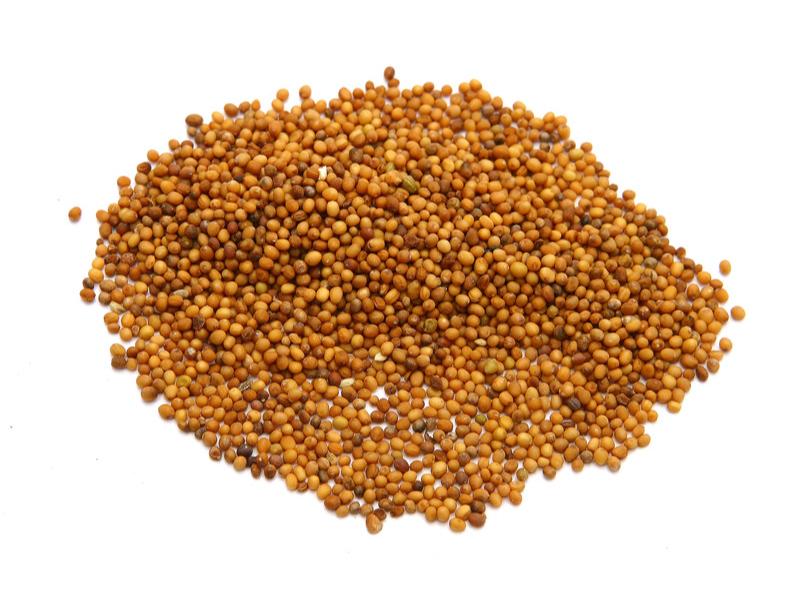Search in medicinals
Sinapis Albae Semen
White mustard [seed]
白芥子 〔白芥子〕 bái jiè zǐ

Alternate Chinese names: 辣菜子 là cài zǐ
Kingdom: Plant
Origin in PRC Pharmacopoeia: Brassica alba (L.) Boiss. [= Sinapis alba L.]. (PRC Pharmacopoeia)
Origin in unofficial sources: Brassica alba (L.) Boiss. [= Sinapis alba L.]
Use: Medicinal
Category: Phlegm-transforming cough-relieving panting-calming agents / Phlegm-transforming agents
Properties: Acrid; warm.
Channel entry: Lung channel. (some sources also list stomach and/or spleen channel.)
Actions and indications:
- Warms the lung and transforms phlegm: Cold phlegm congesting the lung, manifesting in cough, panting and rale, and cold wheezing.
- Frees the network vessels: Cold phlegm obstructing the channels and network vessels, manifesting in yīn flat-abscesses, numbness and tingling of the extremities, and swelling and pain of the joints.
Dosage and method: Oral: 3–6 g (some sources list up to 10g) in decoctions. Bái jiè zǐ is powdered and mixed with vinegar for external use. It is sometimes used on acupoints as a method of natural moxibustion.
Warnings: Bái jiè zǐ wears qì and damages yīn because it is acrid and warm and has a mobile and dispersing nature. It is contraindicated in enduring cough with lung vacuity and in yīn vacuity with effulgent fire. Bái jiè zǐ is irritating to the mucous membranes of the stomach, and overdosing can easily cause abdominal pain, diarrhea, and vomiting. Therefore, it should not be used in excessive doses and is contraindicated in ulcers or bleeding in the gastrointestinal tract. Because it irritates the skin when applied externally, it is contraindicated in patients with sensitive skin or skin allergies.
Quality: Full evenly sized seeds that are yellow or reddish-brown in color are best.
Production area: Sìchuān, Shānxī.
Back to search result Previous Next